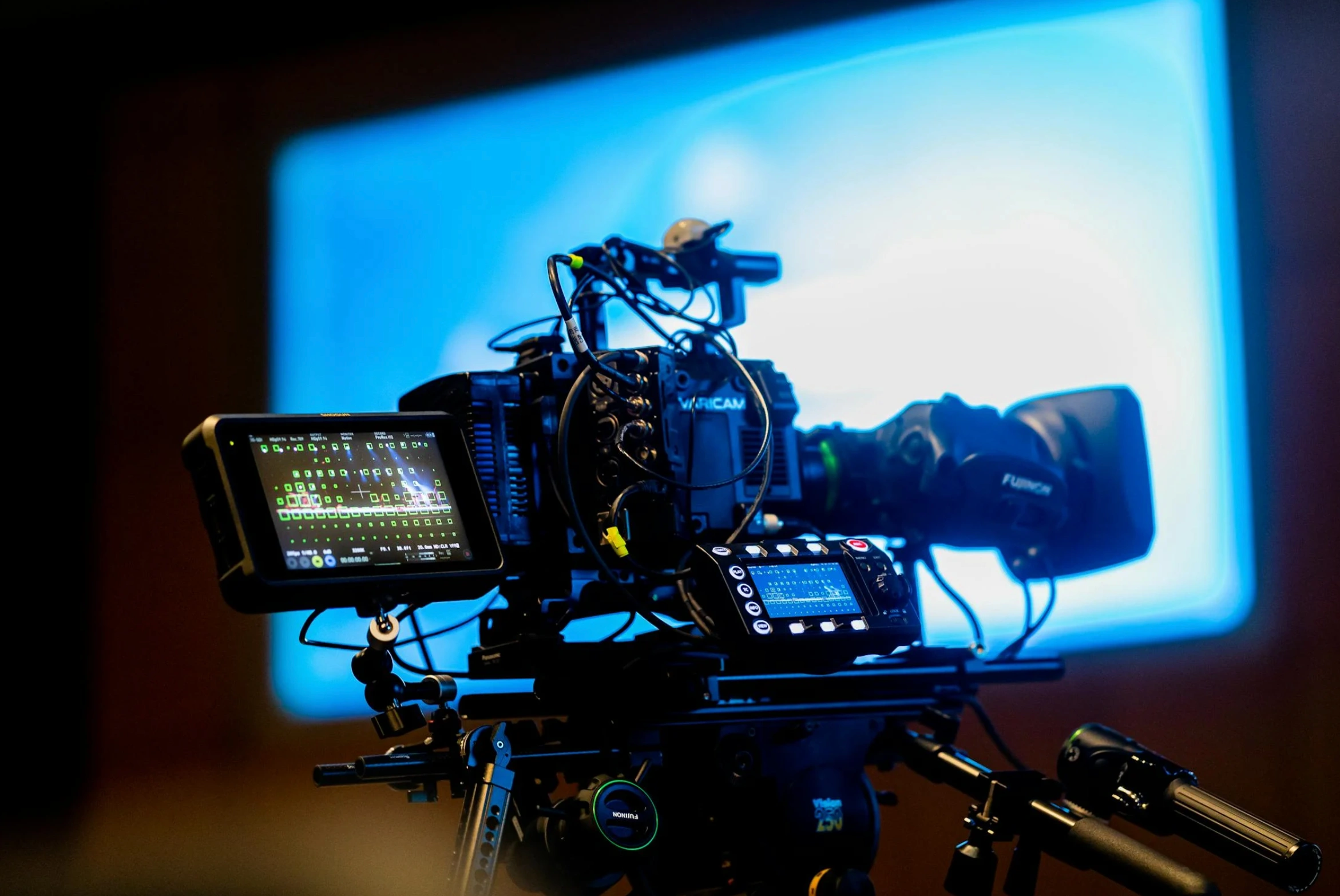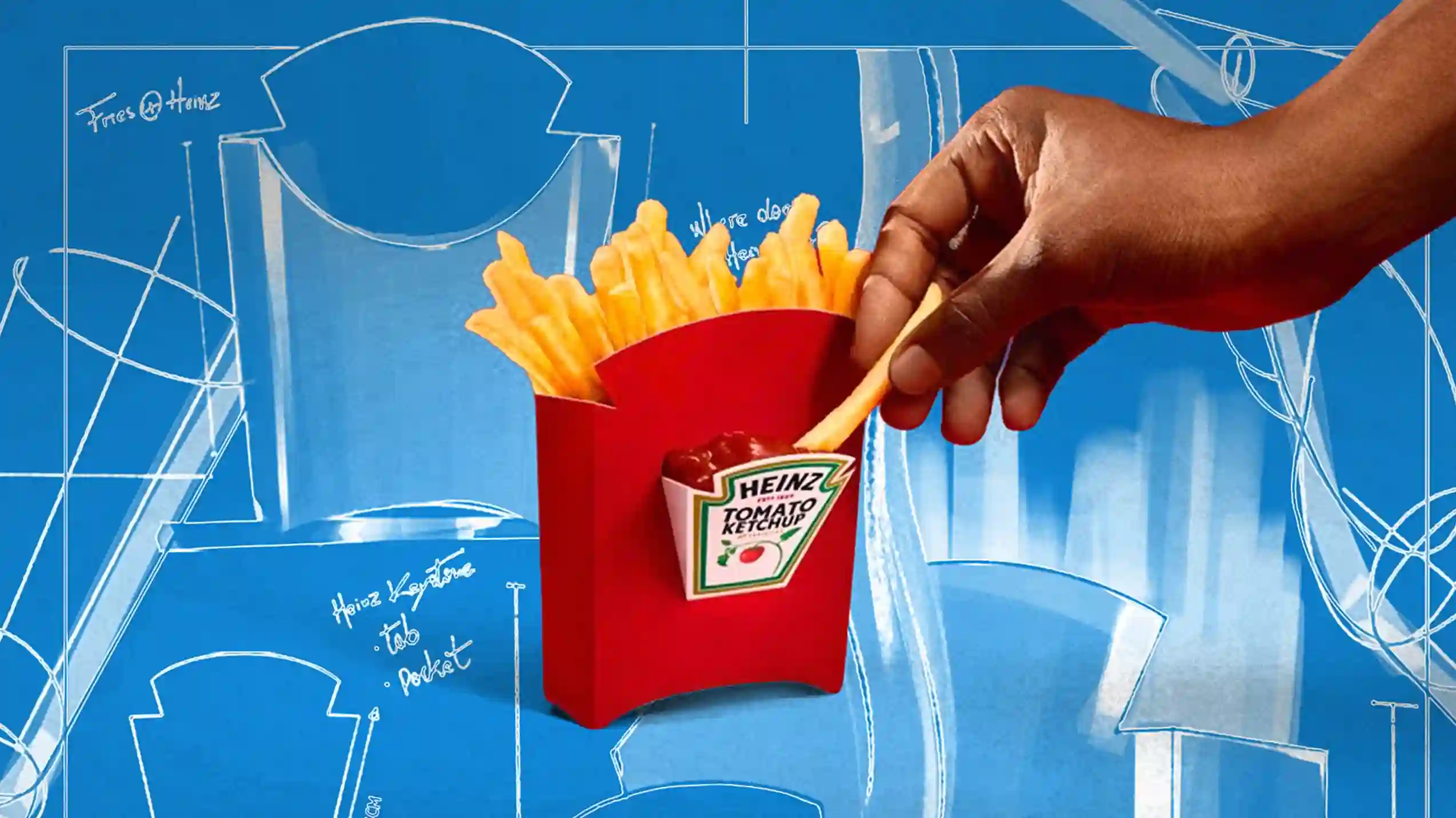Movie Marketing Strategies: How Promotion Builds Demand That Converts
Updated on
Published on

Movie marketing strategies used to be about reach. Buy enough media, land the right interviews, and hope the opening weekend carries you. Now, attention is fragmented, audiences self organize in public, and distribution is measurable in near real time.
For decision makers, the real question is simpler. How do you build demand that converts, without wasting budget or diluting the film’s identity. A modern film marketing strategy needs a system, not a string of tactics, and it needs to connect creative to conversion in a way teams can govern.
Why Movie Marketing Got Harder and More Measurable
Movie marketing strategies now compete with everything. Streaming, short form video, gaming, and always on social feeds have trained audiences to expect instant payoff. That shifts the job of a movie marketing campaign from awareness to sustained intent.
The upside is measurement. Studios and distributors can see how trailer drops, social media movie marketing, and PR moments translate into search, clicks, and presales. The downside is that noisy dashboards can push teams toward shallow optimizations that do not build long term demand.
The better approach treats film promotion as a product launch. You build an audience architecture, you deploy creative through a repeatable system, and you measure behavior that signals purchase, not just engagement.
At A Glance: The Modern Movie Marketing Strategies Stack
- Treat a movie marketing plan as a funnel with clear assets for awareness, consideration, and conversion.
- Build creative systems that scale, not one off hero pieces.
- Use social media movie marketing to generate participation, then route attention to owned conversion.
- Make partnerships and theatrical moments serve the film’s promise, not the other way around.
- Measure leading indicators that predict demand, then lock learnings into the next release cycle.
The Modern Movie Marketing Funnel: From Awareness to Ticket Sales
A film marketing strategy works best when the funnel is explicit. The goal is not to force every viewer down a linear path. The goal is to ensure every touchpoint has a next step, and that your movie marketing plan makes that next step obvious.
Most movie marketing strategies fail when they treat everything as top of funnel. That is how you end up with high reach, high chatter, and weak conversion. A modern movie marketing campaign needs three asset classes that work together.
Awareness Assets
Awareness assets are designed for reach and curiosity. They often include teasers, first look images, creator reactions, and press hooks. In social media movie marketing, this is where short form clips and participation prompts do the most work.
The best awareness work gives audiences a clear emotional promise. It also gives them something to repeat in their own words. That repeatability is a core part of film promotion now, because people share frames, not summaries.
Consideration Assets
Consideration assets reduce uncertainty. Behind the scenes content, cast interviews, format explainers, critic reactions, and longer trailers fit here. Consideration is also where brand and partner activations can reinforce credibility, if they match the film’s tone.
A movie marketing plan should have a clear handoff from awareness to consideration. If the teaser is built for intrigue, the next asset should answer what kind of experience the film delivers, and why it is worth leaving home for.
Conversion Assets
Conversion assets remove friction. Ticketing links, showtime finders, release date reminders, theatre format comparisons, and localized landing pages belong here. A movie marketing campaign that cannot convert demand is not a marketing problem, it is a conversion design problem.
This is where a strong site matters. The difference between curiosity and purchase is often one step, and a clean path beats cleverness every time.

Start With Audience Architecture Before You Build Creative
A film marketing strategy is only as strong as its audience model. Many teams jump to trailers and ads before agreeing on who the film is for, what emotional promise it makes, and what motivates sharing. That is how movie marketing strategies become noisy.
Audience architecture makes the rest of the movie marketing plan easier. It also makes approvals easier, because you can evaluate ideas against a shared definition of success.
Define The Core Promise
Every movie marketing campaign should be able to express one clear promise in plain language. Not a tagline, a promise. What is the emotional payoff, and what is the experience people are buying.
When that promise is clear, partners, creators, and press can carry it without misrepresenting the film. It also reduces the risk of a film promotion push that feels like it belongs to a different movie.
Segment By Motivation, Not Demographics
Demographics still matter for planning, but motivations are what drive behavior. In 2026, audiences cluster around identity, mood, fandom, and format preferences. Your movie marketing strategies should reflect those motivations.
A practical movie marketing plan can start with three motivation segments:
- Spectacle seekers who care about premium formats and communal viewing
- Story seekers who need trust, reviews, and narrative clarity
- Participation seekers who want a moment, a meme, or a shared ritual
Map Moments That Trigger Sharing
Social media movie marketing is driven by triggers. A costume, a reveal, a provocative object, a quote, a soundtrack cue. These triggers need to be identified early, then supported with assets that make sharing easy and on brand.
This is also where web experience matters. If your campaign creates a surge, your site must load fast, be mobile friendly, and direct people to action. If you need support building that path, a web design agency that prioritizes performance and accessibility can turn interest into measurable conversions.
-1.webp)
Creative Systems That Scale: Trailer, Key Art, And Cutdowns
A modern movie marketing campaign needs a creative system. The trailer is a pillar, but it is not enough. The goal is to create a library of assets that can be deployed across platforms without re-inventing the wheel.
This is where movie marketing strategies become operational. The best film promotion teams plan formats, durations, and approvals as carefully as they plan the message.
Trailer Structure That Drives Intent
Trailers still drive decision making, but audiences now encounter trailers in pieces. Your film marketing strategy should design for both the full trailer and the fragment. That means each cut should carry the promise, the tone, and a clear cue for what to do next.
A practical structure for a movie marketing plan includes:
- A hook in the first seconds that signals genre and emotional payoff
- A clear escalation that shows the scale or stakes
- One memorable anchor, such as a line, visual motif, or sound cue
- A crisp close with release date and the simplest conversion path
Key Art As A Performance Asset
Key art is not decoration. It is a performance asset that shows up in feeds, ticketing pages, and search results. A movie marketing campaign should treat key art as a modular system, not a single poster.
When key art is built with variations, localization, and platform constraints in mind, it supports film promotion without constant redesign. This is where brand discipline matters, and where a branding agency can help teams create a visual identity system that holds across every asset.
A Cutdown Library For Every Channel
Social media movie marketing requires cutdowns, not just repurposing. Build a library:
- 6 to 10 second hooks for vertical feeds
- 15-second story arcs for paid distribution
- 30-second mini trailers for retargeting and consideration
- Character and world clips that let fans choose their entry point
This is how movie marketing strategies scale. The system reduces production pressure and keeps the message consistent across the movie marketing plan.
Social Media Movie Marketing That Earns Attention
Social media movie marketing is not a posting calendar. It is a participation design problem. People share what helps them express identity, taste, or belonging. A movie marketing campaign should make that expression easy, while protecting the film’s tone.
What changed is the pace. Moments move in hours, not weeks. Your film marketing strategy needs a content operating rhythm that can respond without losing governance.
Creator First Content Without Losing Brand Control
Creators can carry film promotion when they are given the right frame. The goal is not to script them. The goal is to give them assets, access, and guardrails that let their voice stay natural.
A practical approach inside a movie marketing plan:
- Host creator screenings with clear posting guidance
- Provide a cutdown kit, stills, and approved claims
- Encourage reactions and rituals, not forced talking points
- Build a rapid response approval lane for timely remixes
Community Management As Part Of Film Promotion
Community management is often treated as support. In modern movie marketing strategies, it is a primary channel. Comments, stitches, duets, and reply videos shape perception.
Your film promotion plan should include:
- A dedicated voice guide for replies
- Escalation rules for controversy or misinformation
- A plan for fan art, edits, and UGC licensing requests
- A cadence for updating pinned posts as the narrative shifts
Paid Social As Distribution, Not The Idea
Paid social is still useful, but it should distribute what already works. The best movie marketing strategies treat paid as an amplifier for proven creative, not the place to test the premise.
This is where measurement discipline matters. When teams use paid to validate hooks and cutdowns, the movie marketing campaign becomes smarter over time, instead of louder.

Partnerships And Brand Collaborations Without Brand Dilution
Partnerships can be a force multiplier in film promotion. They can also dilute the film’s identity if they become the story. A film marketing strategy needs a clear standard for when partnerships help, and when they distract.
In recent examples, large partnership ecosystems helped build cultural saturation. The key lesson is governance. Partnerships work when they are aligned to the film’s promise and timed to the funnel, not when they are collected as trophies. A public case study on partnership scale around Barbie highlights how broad collaborations can extend reach when the brand world is coherent (PAGE case study PDF).
The Three Types Of Partner Value
Most partnership value fits into three buckets:
- Distribution partners that provide media, placement, or retail exposure
- Credibility partners that reinforce quality, craft, or cultural relevance
- Participation partners that create rituals, collectibles, or shareable experiences
A movie marketing plan should decide which bucket it needs most. Otherwise, partnerships become noise inside the movie marketing campaign.
Co-Branded Products Versus Co-Branded Moments
Products can drive revenue and reach, but moments drive culture. Co-branded moments can include pop-ups, themed screenings, AR experiences, or interactive installations. In many movie marketing strategies, moments create the shareable proof that the film is an event.
The operational test is simple. If the partner activation cannot be understood at a glance in a social feed, it will not travel. That is why social media movie marketing and partnership planning should be connected.
Governance: Who Approves What
Partnership governance is a creative and legal issue. Build a partner kit that includes:
- Visual identity rules and no go zones
- Claims guidance and release date rules
- Approval timelines with escalation paths
- A shared calendar that ties partner drops to the film promotion arc
If you do not have an approval system, your movie marketing campaign becomes a brand risk problem.
Experiential, Theatrical, And Merch Moments That Move Culture
Experiential tactics are back because they solve a modern problem. They create proof. They give people a reason to go, and a reason to post. In 2026, movie marketing strategies increasingly treat the theatrical experience as part of the product, not just the venue.
Theatres are also evolving their own playbooks, leaning into eventizing and new revenue models, which shapes how film promotion works on the ground (Marketing Brew).
Eventizing The Release
Eventizing means making opening weekend feel like a cultural appointment. Your movie marketing plan can include:
- Premium format positioning with clear reasons to choose each format
- Dress up nights or themed audience rituals that are explicitly encouraged
- Fan first screenings with controlled social posting moments
- Limited time bundles that include collectibles and tickets
This is not about gimmicks. It is about making the movie marketing campaign feel like participation.
The Merch Flywheel
Merch is now a marketing channel. Collectible popcorn buckets and theatrical merchandise can create viral visibility, then return revenue to exhibitors. Reporting on the trend noted AMC’s revenue from collectible concession vessels rising from zero in 2018 to $54 million in 2023 (Time). That number is less important than the behavior behind it.
The behavior is clear. When an object becomes a signal, people share it. That sharing becomes social media movie marketing, even when the studio did not plan it. A film marketing strategy should watch for these objects early, then support them with controlled assets and clear messaging.
Release Timing, Distribution, And The Film Promotion Calendar
Timing is part of the product. A movie marketing campaign that ignores the calendar will fight headwinds it did not need to face. Release strategy decisions affect creative, partnerships, and media, which is why film promotion planning needs to be integrated with distribution.
The calendar also drives localization. A film marketing strategy that works in one region may need different messaging, formats, or partners elsewhere.
Windows And Formats
Premium formats matter because they shape demand. Some films are marketed as must see theatrical experiences, and partners like IMAX have leaned into making the format itself part of the value proposition (Adweek).
Your movie marketing plan should be explicit about:
- Which formats you are prioritizing and why
- How the creative communicates that benefit without jargon
- How ticketing flows handle format selection without confusion
International And Localized Launch
Localization is not translation. It is relevance. Film promotion teams should localize:
- Taglines and hooks that match cultural context
- Partnership choices that make sense locally
- Landing pages with local showtime and ticketing paths
This is where a strong UX layer matters. A UI UX design agency can help structure localization so people land on the right page, see the right CTA, and convert without friction.
Measurement: What To Track When Attribution Is Messy
Measurement makes movie marketing strategies better, but only if metrics match the decision. Vanity metrics are easy to collect. Predictive metrics are what matter.
The goal is not perfect attribution. The goal is to build a learning loop where each movie marketing campaign improves the next movie marketing plan.
The Metrics That Matter
Track a mix of leading indicators and conversion indicators:
- Search lift for the film title and key terms
- Trailer completion rates, not just views
- Click through to ticketing and showtime pages
- Presales and day one ticket velocity
- Email and SMS opt ins where applicable
- Site performance, especially mobile load time and bounce rate
Audience behavior varies by region. For Canadian context, Telefilm reported high moviegoing participation among under 35 audiences in 2024, which affects channel mix and creative choices (Telefilm Canada).
Testing Rhythm
A modern film marketing strategy should have a testing rhythm:
- Test hooks and cutdowns early with small spend
- Promote winners with scaled distribution
- Retire underperformers fast, without debating taste
- Maintain a creative archive for future launches
This turns social media movie marketing into an evidence driven discipline, not a guessing game.
Post Launch Learning Loop
After launch, the campaign is not over. Capture learnings:
- Which assets drove search and clicks
- Which partner drops moved the needle
- Which messages reduced uncertainty
- Which pages converted and which leaked demand
This is where a marketing consultation and audit can help teams translate campaign data into an actionable plan for the next release cycle.
.webp)
Turn Attention Into Owned Demand With A High-Performing Site
Owned demand is the quiet advantage in movie marketing strategies. Social feeds change, media rates fluctuate, and algorithms shift. A strong site and owned channels create a stable conversion layer beneath the noise.
For studios, distributors, and production companies, this is also a brand asset. A film marketing strategy that invests in owned conversion improves both opening weekend and long tail performance.
Movie Websites That Convert
A conversion-ready film site is simple, fast, and mobile-first. The core pages should include:
- Clear release date and format information
- A showtime finder that works on mobile
- Trailer and clips that load quickly
- A press and assets area with licensing clarity
- Accessibility basics that expand reach
This is where strong website fundamentals matter. A web design agency that builds fast, accessible websites can reduce drop off at the most expensive part of the funnel.
Email And SMS Without Annoying People
Email and SMS can support film promotion when used sparingly. The best movie marketing plan uses owned channels for:
- Presale alerts and format reminders
- Local premiere announcements
- Limited time merch drops that tie to the film experience
- Post launch viewing options once windows shift
Owned channels also support B2B adjacent work, such as brand partnerships, licensing, and corporate screenings. In those cases, a B2B marketing agency can create segmentation and messaging to improve response quality without making the tone feel salesy.
Common Mistakes In A Movie Marketing Campaign
Most failures in movie marketing strategies are not caused by one bad trailer. They are caused by operational gaps and unclear priorities. A few patterns show up repeatedly.
First, teams confuse activity with progress. Posting more does not fix a weak promise, and spending more does not fix a broken conversion path. A film marketing strategy must protect the core promise, then build a system around it.
Second, campaigns over index on awareness. Social media movie marketing can generate chatter that never converts. If the movie marketing plan does not route attention to ticketing, showtimes, or owned demand, interest evaporates.
Third, governance is missing. Partner approvals, creator guidance, and rapid response workflows are often improvised. That creates brand risk and slows the movie marketing campaign at the worst time.

A Practical Movie Marketing Plan Template You Can Reuse
A reusable movie marketing plan helps teams move faster and stay consistent across releases. The goal is to make the film marketing strategy repeatable, without making it generic.
Use this as a planning template for your next movie marketing campaign.
- Define the promise
- One sentence promise
- Three proof points the film delivers on
- Two no go messages that would misrepresent the film
- Build audience architecture
- Three motivation segments
- Top objections for each segment
- The moment each segment is most likely to share
- Design the asset system
- Teaser plan and cutdown library
- Trailer release schedule
- Key art variations and localization plan
- Plan social media movie marketing
- Creator screening and kit
- Community management voice rules
- Paid distribution plan tied to asset testing
- Partnership and experiential plan
- Partner value bucket for each deal
- Calendar integration with campaign beats
- Governance and approvals
- Conversion and owned demand
- Site structure and ticketing flow
- Email and SMS plan
- Accessibility and performance checks
- Measurement and learning loop
- Leading indicators and conversion metrics
- Weekly review cadence
- Post launch retrospective and next release updates
A Release That Lands and a Brand That Lasts
Movie marketing strategies work best when they’re treated as a system, not a scramble. The strongest movie marketing campaign connects audience motivation to creative assets, distributes those assets with discipline, and removes friction at the moment of conversion. That’s how a film marketing strategy becomes measurable without becoming mechanical. It also keeps film promotion honest, because every channel and every partnership has a clear job to do.
At Brand Vision, we help teams turn attention into action by pairing creative clarity with execution that holds up under real traffic, real deadlines, and real scrutiny. That means building conversion ready experiences, tightening UX paths to ticketing and showtimes, and creating brand systems that keep a movie marketing plan consistent across trailers, social, and partner activations. If you want your next launch to be cohesive, fast, and conversion focused, start a conversation with Brand Vision and we’ll map a practical rollout that fits your release, your audience, and your goals.









